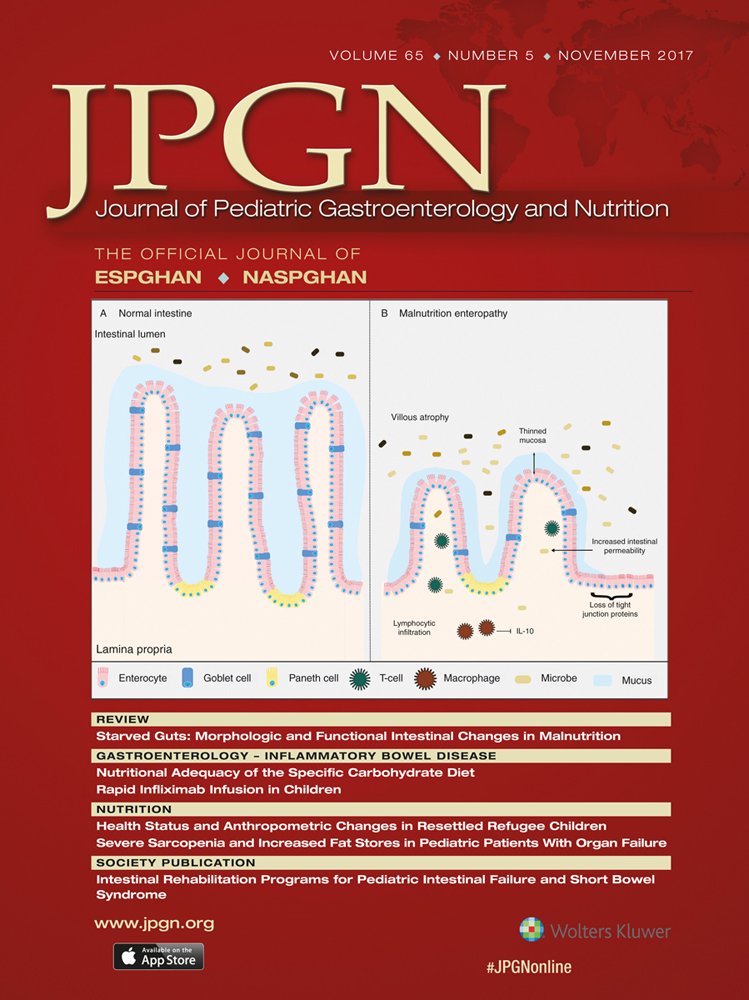Nutritional Adequacy of the Specific Carbohydrate Diet in Pediatric Inflammatory Bowel Disease
Supplemental digital content is available for this article. Direct URL citations appear in the printed text, and links to the digital files are provided in the HTML text of this article on the journal's Web site (www.jpgn.org).
www.clinicaltrials.gov registration number: NCT02213835.
This work was supported by grants from the Keating Foundation, and Seattle Children's Center for Clinical and Translational Research Academic Enrichment Fund. This publication was also supported by the National Center for Advancing Translational Sciences of the National Institutes of Health under Award Number UL1TR000423. The content is solely the responsibility of the authors and does not necessarily represent the official views of the National Institutes of Health. None of the authors have a conflict of interest in regards to this article except for David Suskind who has written/published Nutrition in Immune Balance (NIMBAL).
The authors report no conflicts of interest.
ABSTRACT
Introduction:
The specific carbohydrate diet (SCD) is an exclusion diet used as a therapy in inflammatory bowel disease. The aim of this study was to evaluate the nutritional adequacy of the SCD.
Methods:
Prospective dietary data for 12 weeks were analyzed for pediatric patients on the SCD. Intake of 20 key nutrients was compared to dietary recommended intake levels and nutrient intake data from similarly aged children from The National Health and Nutrition Examination Survey National Youth Fitness Survey in 2012.
Results:
Nine patients enrolled, with 8 patients completing the study. Six of 8 individuals completing the study had gained weight, 1 individual had weight loss, and 1 had no change in weight. Energy intake was significantly greater than 100% of the recommended daily allowance (RDA)/adequate intake for 64% of daily intakes completed for this study. The majority of participants’ daily intakes met or exceeded the RDA for vitamins B2, B3, B5, B6, B7, B12, C, A, and E. One hundred percent of participants’ intakes were below the RDA for vitamin D. Seventy-five percent of daily intakes were less than the RDA for calcium. The upper limit was met or exceeded for magnesium in 42% of daily intakes. Average vitamin A intake was significantly greater than the upper limit (P = 0.01).
Conclusions:
Nutrient intake of pediatric inflammatory bowel disease patients on the SCD was adequate when compared with a healthy peer reference population, but adequacy was variable when compared with the dietary recommended intakes. Close monitoring with a multidisciplinary team for patients using the SCD as an alternative or adjunct therapy is recommend to ensure positive outcomes for overall patient health.




